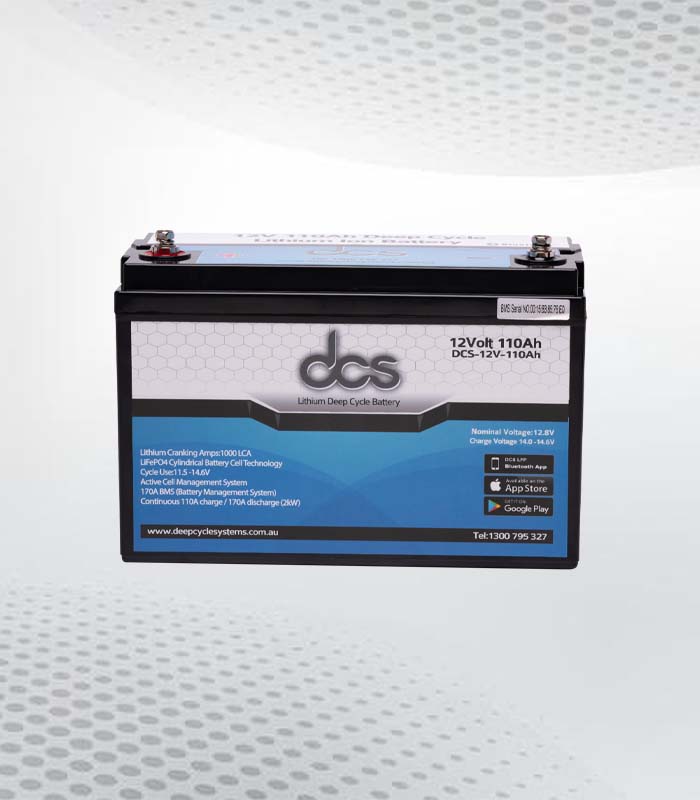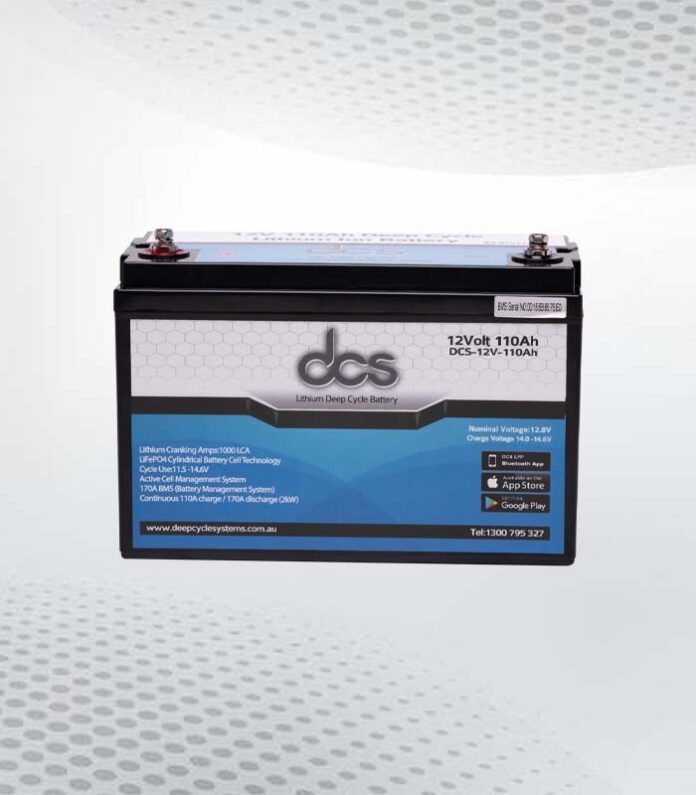When it comes to the heart of your vehicle, the car battery plays a crucial role in ensuring that your engine starts smoothly and all of your electrical components function properly. With technological advancements, a lithium ion car battery has emerged as a superior alternative to traditional lead-acid batteries. In this blog post, we will explore the benefits of using a lithium-ion car battery and how it can enhance your vehicle’s performance.
Enhanced Battery Life Span
A major highlight of switching to a lithium-ion car battery is its significantly longer life expectancy than traditional lead-acid options. Traditional batteries wear out after 3 to 5 years of regular use, often requiring frequent replacements that can add to costs and environmental impact over time. Contrastingly, lithium-ion counterparts boast a life span extending beyond a decade, underlining their durability and long-term value. This remarkable longevity is largely attributed to the lithium-ion battery’s ability to withstand numerous charge and discharge cycles with minimal degradation.
The extended life span of these batteries is a testament to their superior construction and the efficiency with which they manage power. Their ability to maintain a steady performance over a longer period reduces the need for premature replacements, thereby offering vehicle owners peace of mind and significant savings in maintenance costs. Furthermore, this attribute contributes positively to environmental conservation efforts by lowering the frequency of battery disposal.
Lithium-ion batteries embody a blend of advanced technology and practical benefits, with their prolonged operational life standing out as a key advantage. This longevity is crucial for consumers looking to maximize their investment and the environment, as it translates to less waste and fewer resources needed for battery production and recycling.
Superior Charge Efficiency of Battery Lithium Car
One of the standout attributes of a battery lithium car is its exceptional charge efficiency. This characteristic is a game-changer for drivers, as it enables the battery to store a considerable amount of energy in a more compact format and facilitates quicker recharge times.
Lithium-ion variants can achieve a substantial charge level in a fraction of the time, unlike traditional lead-acid batteries that often require hours to fully charge. This expedited charging process is especially beneficial in today’s fast-paced world, where time is of the essence, and waiting around for a battery to charge is not always feasible.
Furthermore, the superior charge efficiency of lithium-ion car batteries plays a pivotal role in enhancing the usability and convenience of electric vehicles (EVs) and hybrids. For EV owners, the ability to quickly recharge their vehicle’s battery means less downtime and more time on the road. This efficiency contributes to a smoother and more responsive driving experience and supports the broader adoption of electric vehicles by making them more practical for everyday use.
Additionally, this high level of charge efficiency leads to improved energy conservation. Lithium-ion batteries optimise the charging process to ensure less energy is wasted during the charge and discharge cycles. This efficiency is beneficial for the vehicle’s performance and the owner’s convenience and aligns with environmentally friendly practices by reducing the overall energy consumption associated with vehicle charging.
Lightweight Design, Heavier Performance
The revolutionary design of lithium-ion car batteries offers a significant advantage in terms of weight without compromising on performance. This section delves into how the lightweight nature of lithium-ion batteries contributes to enhanced vehicle efficiency and handling.
Reduced Vehicle Weight
Lithium-ion batteries are inherently lighter than lead-acid batteries. This weight reduction contributes to a decrease in the overall weight of the vehicle, which, in turn, improves fuel efficiency for combustion engine vehicles and increases range for electric vehicles.
Enhanced Handling and Performance
With the battery comprising a lighter component of the vehicle’s total weight, drivers can experience improved handling and acceleration. This is particularly noticeable in electric and hybrid vehicles, where the performance is closely tied to the efficiency and weight of the battery system.
Increased Energy-to-Weight Ratio
Lithium-ion batteries provide a higher energy-to-weight ratio compared to their lead-acid counterparts. This means that for their size and weight, they can store and deliver more power, enabling vehicles to travel longer distances on a single charge or ensuring that combustion engine vehicles have reliable energy storage.
Optimized Space Utilization
Lith-ion batteries’ compact size and lightweight design allow for more flexible placement within the vehicle. This can lead to better space utilisation, potentially offering more room for interior design and cargo.
Contribution to Lower Carbon Footprint
The efficiency gained through a lighter battery translates to lower energy consumption and, consequently, reduced emissions for combustion engine vehicles. The extended range capability for electric vehicles means less frequent charging, indirectly contributing to lower overall energy demand and a smaller carbon footprint.
Lithium Car Battery is an Environmentally Friendly Option
Lithium car battery emerges as a greener alternative in automotive power sources, primarily due to its eco-friendly characteristics. Lithium-ion variants are constructed from lighter, less harmful materials, Unlike traditional lead-acid batteries that contribute to environmental pollution and hazardous waste. The absence of toxic heavy metals like lead and mercury in their composition makes them safer for the environment and human health.
Additionally, the recyclability of lithium-ion batteries presents a significant step towards sustainable automotive practices. We reduce landfill waste and conserve natural resources by ensuring that these batteries can be repurposed or recycled at the end of their life cycle.
This aspect is particularly crucial as the world moves towards more sustainable energy solutions and seeks to minimize the carbon footprint of transportation. Lithium-ion car batteries are a testament to the automotive industry’s shift towards greener, more sustainable technology through their efficient energy use and reduced environmental impact.
 High Energy Density of Lithium Car Batteries for Longer Ranges
High Energy Density of Lithium Car Batteries for Longer Ranges
Lithium car batteries are renowned for their impressive energy density, a pivotal feature that sets them apart in the automotive sector. This superior energy density means these batteries can hold more energy in a comparably smaller package. Such a characteristic is invaluable for electric vehicles (EVs) and hybrids, as it directly translates to extended driving ranges without necessitating larger or heavier batteries. Storing more energy per unit of weight is a critical advantage in automotive design, enabling manufacturers to innovate more efficient and compact vehicles without sacrificing performance.
This high energy density is particularly beneficial for EVs, which rely solely on their batteries for propulsion. It ensures that vehicles can travel considerable distances on a single charge, addressing one of the most common concerns among potential EV buyers: range anxiety. Lithium-ion batteries make electric mobility a more practical and appealing option for a broader audience by pushing the boundaries of how far an electric vehicle can go.
Moreover, lithium-ion batteries’ enhanced energy storage capacity supports the growing demands for vehicles equipped with advanced features and electronics without compromising their range or necessitating frequent stops for recharging. This aspect is crucial in today’s automotive landscape, where digital connectivity and autonomous driving technologies are becoming increasingly prevalent.
Low Maintenance Needs
Lithium-ion car batteries are celebrated for their minimal maintenance requirements, a feature that significantly lowers the overall cost and effort involved in vehicle upkeep.
No Regular Watering
Lithium-ion variants do not lose water during the charge cycle, unlike lead-acid batteries, eliminating the need for regular topping up with distilled water. This reduces the time and resources needed for maintenance.
Self-discharging Rate
These batteries have a much lower self-discharging rate than traditional batteries. This means they retain their charge for longer periods when the vehicle is not in use, avoiding the frequent need for recharges that can degrade battery life.
No Active Balancing Needed
Lithium-ion batteries maintain their balance without active intervention. This contrasts with other types of batteries that may require periodic balancing to ensure all cells charge and discharge evenly, further reducing maintenance efforts.
Durability in Varied Temperatures
Their robustness in facing temperature variations means lithium-ion batteries do not require seasonal maintenance or special care to prevent damage from extreme weather conditions, making them ideal for use in any climate.
Integrated Battery Management Systems (BMS)
The advanced BMS in lithium-ion batteries monitors the battery’s health and performance, reducing the need for manual checks and maintenance. This system ensures optimal performance while protecting the battery from common issues like overcharging and deep discharging.
Improved Safety Features
Advanced Thermal Management
Lithium-ion car batteries have sophisticated thermal management systems that regulate the battery’s temperature. This reduces the risk of overheating, a common concern in high-performance vehicles, ensuring the battery operates within a safe temperature range.
Enhanced Stability
The chemical composition of lithium-ion batteries offers greater stability during operation. This inherent stability reduces the likelihood of leakage or battery failure, which can lead to dangerous situations in traditional battery types.
Built-in Protection Circuits
Lithium-ion car batteries are designed with protection circuits that prevent overcharging and deep discharging. These safety mechanisms help avoid potential damage to the battery and the vehicle, further ensuring the safety of the occupants.
Robust Casing
The casings of lithium-ion batteries are built to withstand harsh conditions and impacts, providing an extra layer of protection against physical damage. This robustness is crucial in a collision, where the battery’s integrity is paramount for safety.
Non-Toxic Materials
Unlike lead-acid batteries, lithium-ion batteries do not contain toxic heavy metals like lead or mercury. This reduces the risk of toxic exposure in the event of a battery breach, making them a safer choice for both people and the environment.
Conclusion
In summary, transitioning to a lithium ion car battery is smart for vehicle owners seeking a blend of performance, longevity, and sustainability. These batteries deliver exceptional energy efficiency and a compact, lightweight form and stand out for their quick recharge capabilities and environmental benefits. Their durability and low maintenance requirements further solidify their value, reducing the overall ownership cost while minimizing environmental impact. Safety enhancements and reduced toxic materials provide added peace of mind, making lithium-ion batteries a forward-thinking choice for powering today’s automobiles. Embrace the future of driving with the cutting-edge technology of lithium-ion car batteries and experience a new level of reliability and efficiency on the road.
FAQs
Q: Are lithium-ion car batteries compatible with all vehicle types?
A: Yes, lithium-ion car batteries are versatile and can be used in a wide range of vehicles, including conventional combustion engine cars, hybrids, and fully electric vehicles (EVs).
Q: How much faster can lithium-ion batteries charge than lead-acid batteries?
A: Lithium-ion batteries can charge significantly faster than lead-acid batteries, often reaching a substantial charge within a few hours, a fraction of the time traditional batteries require.
Q: Can a lithium ion car batter operates in extreme temperatures?
A: These batteries are designed to function effectively in various temperatures. Their built-in thermal management systems ensure stable performance in hot and cold climates.
Q: Are there any recycling programs for lithium-ion car batteries?
A: Many manufacturers and independent organizations have initiated recycling programs to handle lithium-ion car batteries at the end of their lifecycle, emphasizing the importance of sustainability and environmental responsibility.
Q: What is the cost difference between lithium-ion and lead-acid car batteries?
A: Initially, lithium-ion batteries may have a higher upfront cost compared to lead-acid batteries. However, their longer lifespan, lower maintenance requirements, and efficiency savings can make them more cost-effective in the long run.
| Other Good Articles to Read |
| skank blogs |
| unreal blogs |
| tba blogs |
| all city forums |
| dany blogs |
| refuge blogs |
| the music blogs |
| key forums |
| the big blog theory |
| joe blogs |
| blogs 4 me |
| Blogs Emon |
| Related Business Listings |
| Contact Directory |
| Local Business Profiles |

